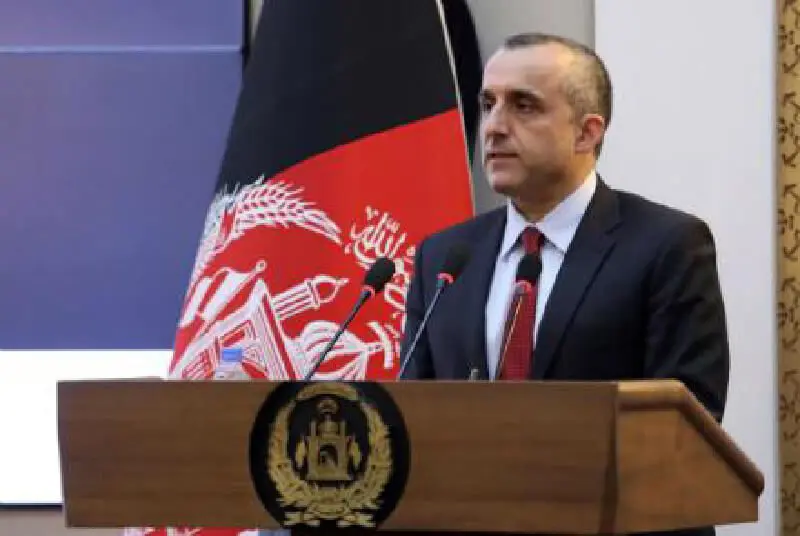First Vice President Amrullah Saleh on Thursday, while speaking at a gathering in Nangarhar, said that the real fight is over power.
The Taliban has not replied to the question about their definition of an Islamic system, Saleh said, adding that “the real fight is over power, not religion.”
“We need peace with dignity that ensures women’s rights,” Saleh said. “There will be no compromise on the republic, human rights and the nation’s flag.”
He also mentioned that the Taliban and those who support the Taliban “are behind all the destruction and the killing of the people in the country.”
Saleh says those who are living in areas under Taliban influence “are poor people and are living like captives.” Saleh says Taliban has affected the country’s economy and “we hope we will address (the problems) of those people.”
Second round of talks
Taliban spokesman Mohammad Naeem on Twitter on Wednesday said that the intra-Afghan talks resumed in Doha this evening and the working groups from both sides will start their work on the agenda of the talks on Saturday.
On December 12, negotiators in Doha reported that both sides had exchanged their lists about the agenda of the peace negotiations and that the next phase of the talks would begin on January 5.
The negotiating teams of the Islamic Republic of Afghanistan and the Taliban earlier last month agreed on procedural rules for the talks. Following their agreement, they held three meetings on the agenda of the negotiations and were expected to start the talks this week
The negotiators reached an agreement on a 21-article list of procedural rules for the talks after three months of discussion and have finalized an initial list for the agenda of the peace negotiations.
Last month, sources familiar with the matter said that a 28-article draft agenda has been handed to the Taliban by the Afghan team and the Taliban has given a 21-article agenda draft to the republic’s negotiators.
The first round of peace negotiations between teams from the Islamic Republic of Afghanistan and the Taliban started on September 12.
No Ghani-Khalilzad meeting
The US Special Representative for Afghanistan Reconciliation Zalmay Khalilzad on Monday said that he has “returned to Doha and the region with expectations that the parties involved in the Afghan conflict will make tangible progress in the second round of Afghanistan peace negotiations.
Over the past few days Khalilzad has met mainstream Afghan politicians in Kabul including former president Hamid Karzai, the head of the High Council of National Reconciliation Abdullah Abdullah and other senior govt officials such as National Security Adviser Hamdullah Mohib, Foreign Minister Mohammad Hanif Atmar and former Mujahideen leader Abdul Rab Rasoul Sayaf.
However, a meeting between President Ashraf Ghani and Khalilzad has not taken place yet.
Sources familiar with Afghanistan’s politics have said that the possibility of an interim administration is one of the reasons why President Ghani has so far refrained from meeting with Khalilzad.







